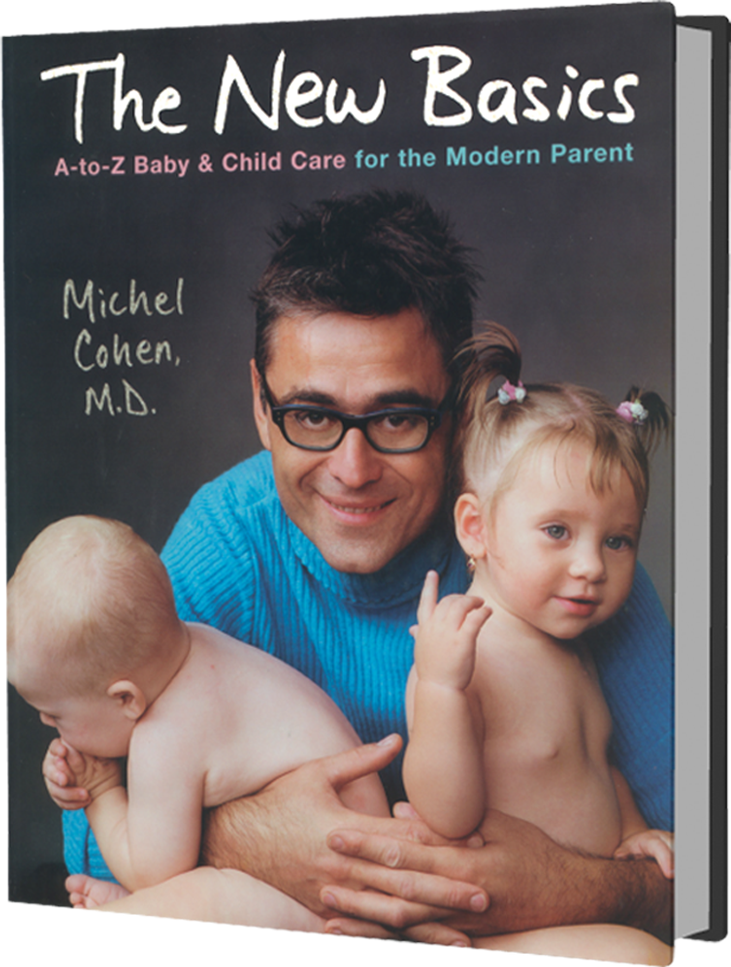
Biting
 Babies practice oral exploration from a fairly young age, first by gumming their hands and other objects and then, as early as six months of age, by biting. Biting involves all encountered objects, including you. The first bites are (probably) not premeditated, but Lucy soon discovers that biting can be a lot of fun. When she sinks her brand-new little fangs into your arm, the noise you make is far more entertaining than any sounds her toys can produce. As she develops the habit, she will, unfortunately for you, learn to distinguish the “squeakier” places, such as your nipple.
Babies practice oral exploration from a fairly young age, first by gumming their hands and other objects and then, as early as six months of age, by biting. Biting involves all encountered objects, including you. The first bites are (probably) not premeditated, but Lucy soon discovers that biting can be a lot of fun. When she sinks her brand-new little fangs into your arm, the noise you make is far more entertaining than any sounds her toys can produce. As she develops the habit, she will, unfortunately for you, learn to distinguish the “squeakier” places, such as your nipple.
To stop her biting, just don’t respond. As difficult as this sounds, it is effective. When Lucy bites you, just move your arm out of the way without screaming.
She’ll quickly find another way to make noise, or she’ll go back to her squeaky toys.
In Toddlers
 Of course I’m upset! Here’s how I found out. When I picked Jimmy up at nursery school today, Mrs. Campbell—you know, the school director—gave me the strangest look and said we needed to talk. Once we were in her office, that’s when she told me Jimmy had bitten some other kid—our Jimmy! She even showed me a Polaroid of his toothmarks on this poor little girl’s arm. Mrs. Campbell was suspicious. She asked if everything’s going well here at home, or if we’ve had any major changes in the family. She even offered to send Jimmy to the school psychologist! What should we do?
Of course I’m upset! Here’s how I found out. When I picked Jimmy up at nursery school today, Mrs. Campbell—you know, the school director—gave me the strangest look and said we needed to talk. Once we were in her office, that’s when she told me Jimmy had bitten some other kid—our Jimmy! She even showed me a Polaroid of his toothmarks on this poor little girl’s arm. Mrs. Campbell was suspicious. She asked if everything’s going well here at home, or if we’ve had any major changes in the family. She even offered to send Jimmy to the school psychologist! What should we do?
For toddlers, biting is guaranteed to get a reaction from parents, teachers, and other adults. It is true that the first bites stem from frustration, but Jimmy soon grows all too aware of the commotion that bites generate. To eradicate this antisocial behavior, you must limit the attention Jimmy receives for biting, because he understands it as positive reinforcement.
- Try to head off the triggering circumstance. If you sense that a particular situation is about to take a turn for the worse, scoop Jimmy up before he gets his teeth ready for action. The fewer chances he has to bite, the less he’ll bite.
- If he manages to bite at home, tell him this is not appropriate, put him in his room for a couple of minutes, and then let him out without any more discussion.
- Do the same thing at the park if he bites or tries to: Strap him in the stroller for a little while to cool off as you roll him along in silence.
- As embarrassed as you may feel in front of the other parents, don’t lecture him. Jimmy enjoys the attention, even though he has no idea what you’re talking about.
- Don’t insist on an apology. Jimmy isn’t sorry, but he also didn’t mean any harm. He just was a little frustrated and didn’t know how to handle it.
- Don’t expect him to use words instead of biting (assuming he already has the ability to speak). He’ll resort to words as he gets older. On top of that, the words that come out of Jimmy’s mouth instead of biting may not make you too happy.
Biting and hitting are totally normal behaviors for a toddler. If you give these events minimal attention and enforce boundaries properly, you won’t see more than a few exploratory bites. And before the end of his second year, Jimmy will have abandoned his canine inclinations and moved on to more “acceptable” ways of coping with frustration.




 MEDICATION DOSAGE
MEDICATION DOSAGE

